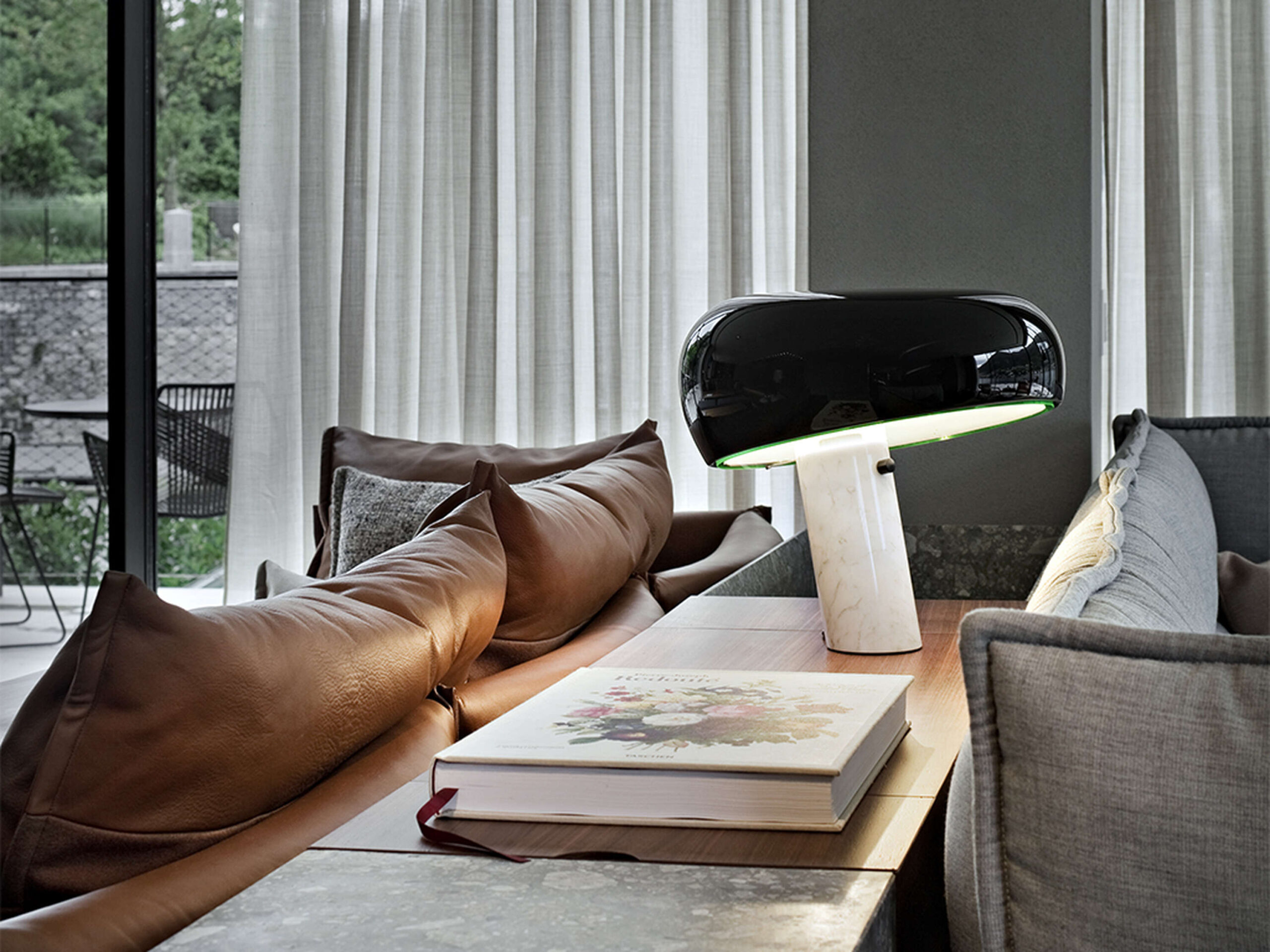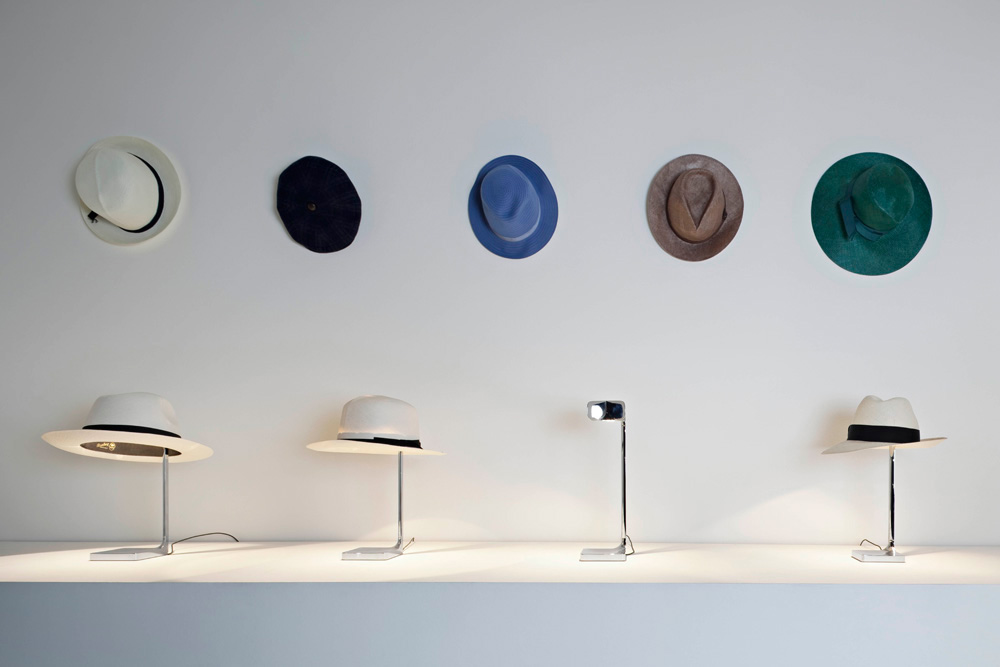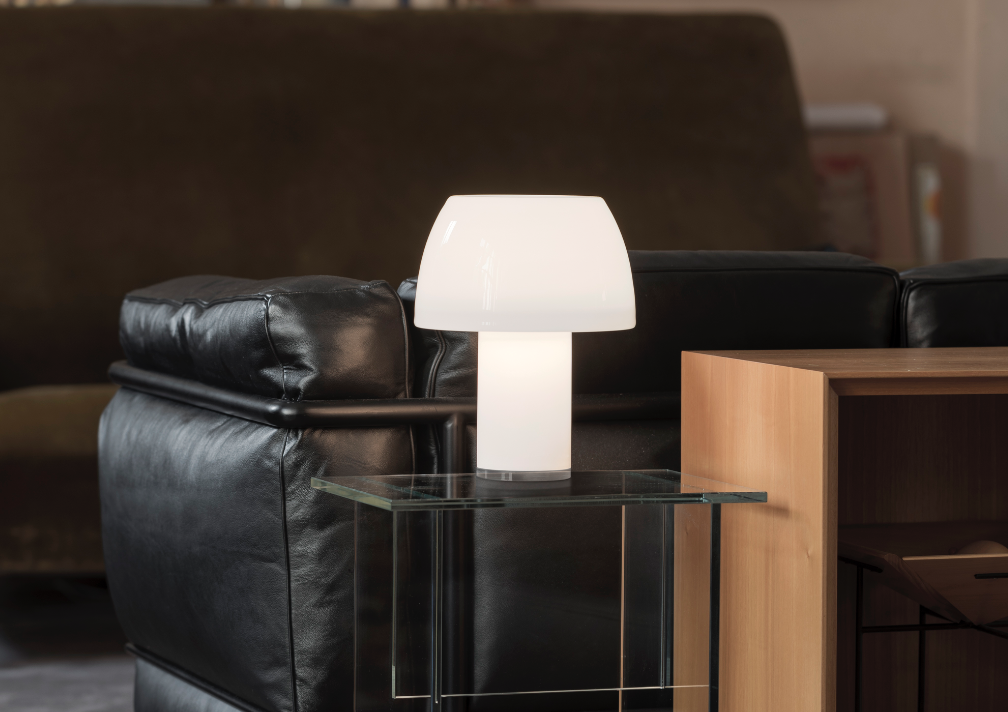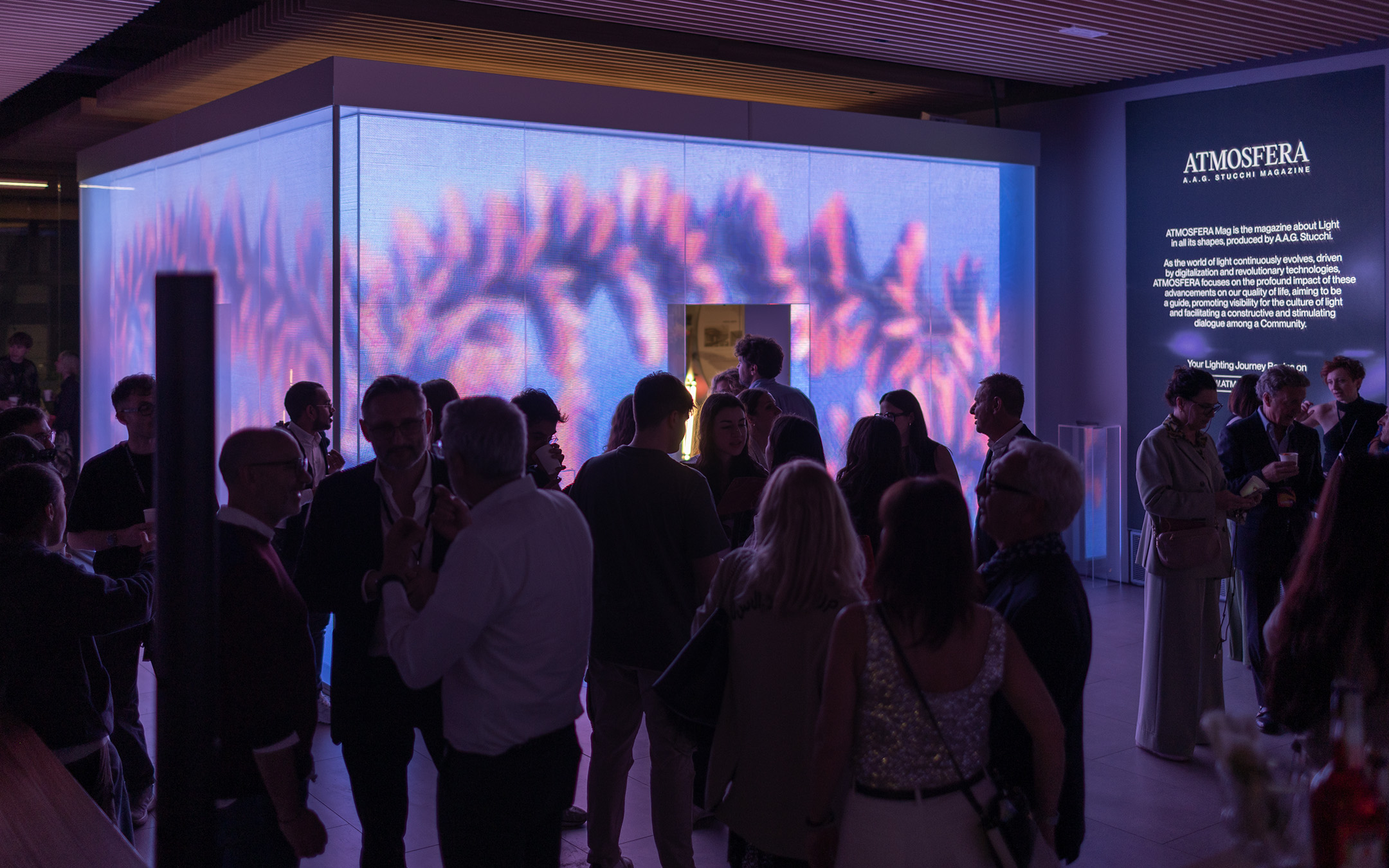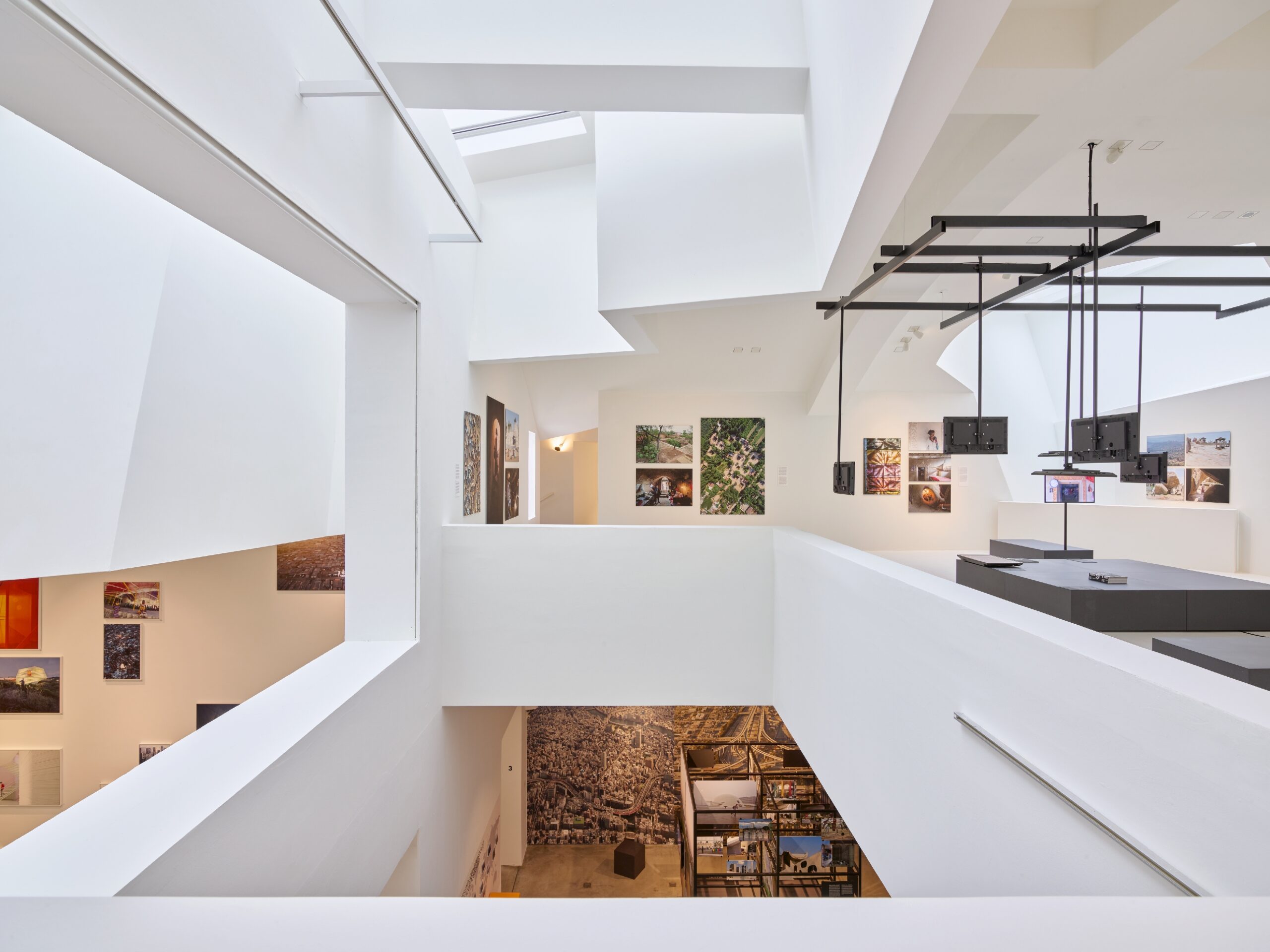BROKIS is a lighting brand that combines elegant, contemporary design with Bohemian glass tradition.
Founded in 2006 by entrepreneur Jan Rabell, the brand has a fascinating history: acquiring the historic Janštejn Glassworks in 1997, Rabell aimed to restore its ancient prestige and continue the tradition of Bohemian blown glass. In the process, the company also became a subcontractor for big lighting brands. In 2006, the desire to develop their design lines gave birth to Brokis.
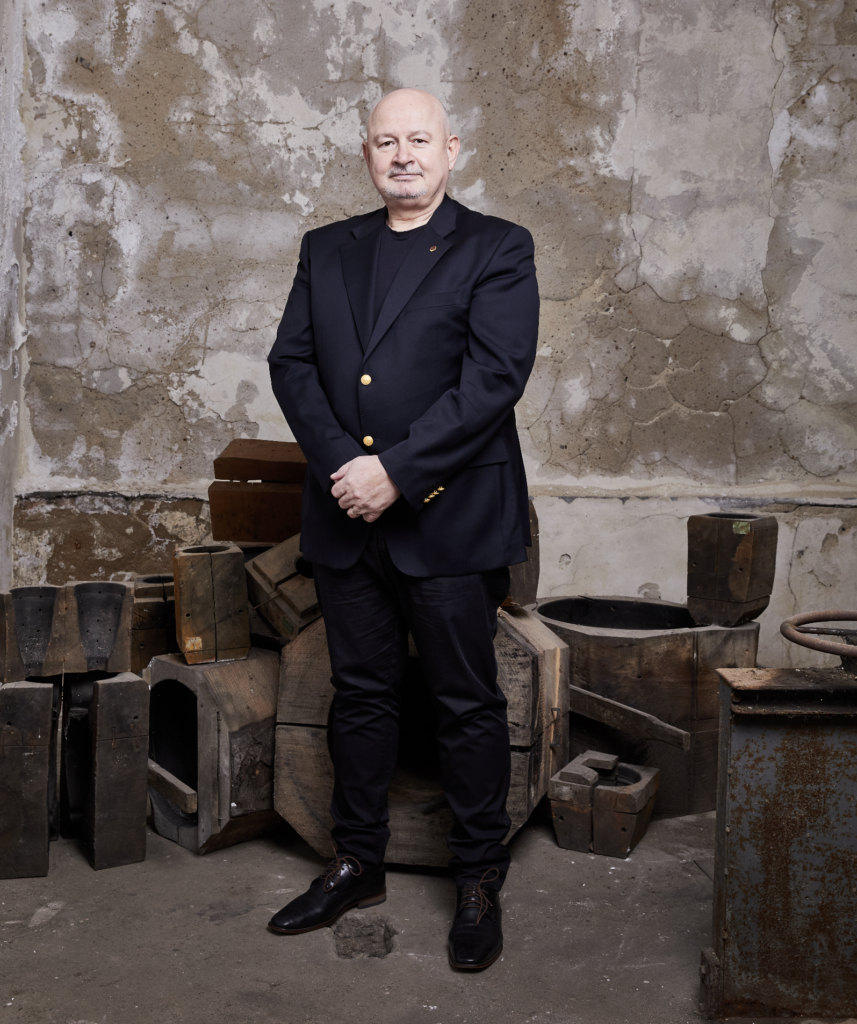
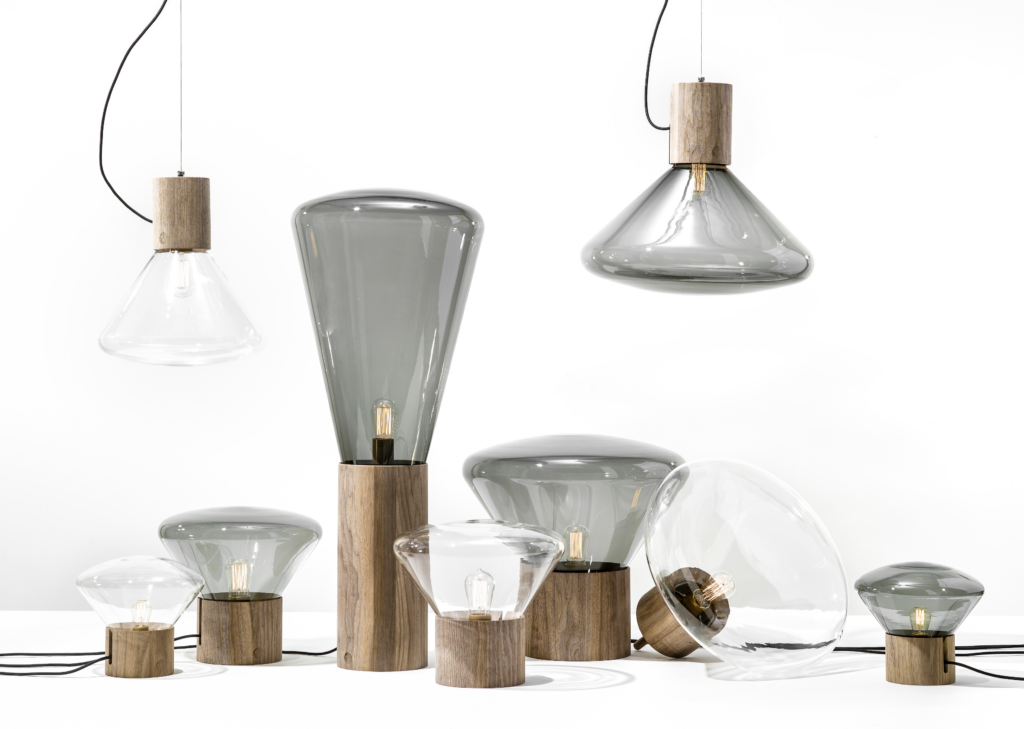
You have many product collections developed by international designers, where different materials (leather, ropes, woods, metals) are skillfully paired with glass without ever overshadowing the light. How is a Brokis product born?
Since the beginning, Brokis has always strived to create original concepts with different materials and shapes. Making our collections recognizable and timeless is a long journey, especially today when we set the highest possible standards in product design and precision in craftsmanship. It takes about two years to launch a new collection globally. In our manual production process, each piece goes through the hands of at least 40 highly skilled workers.
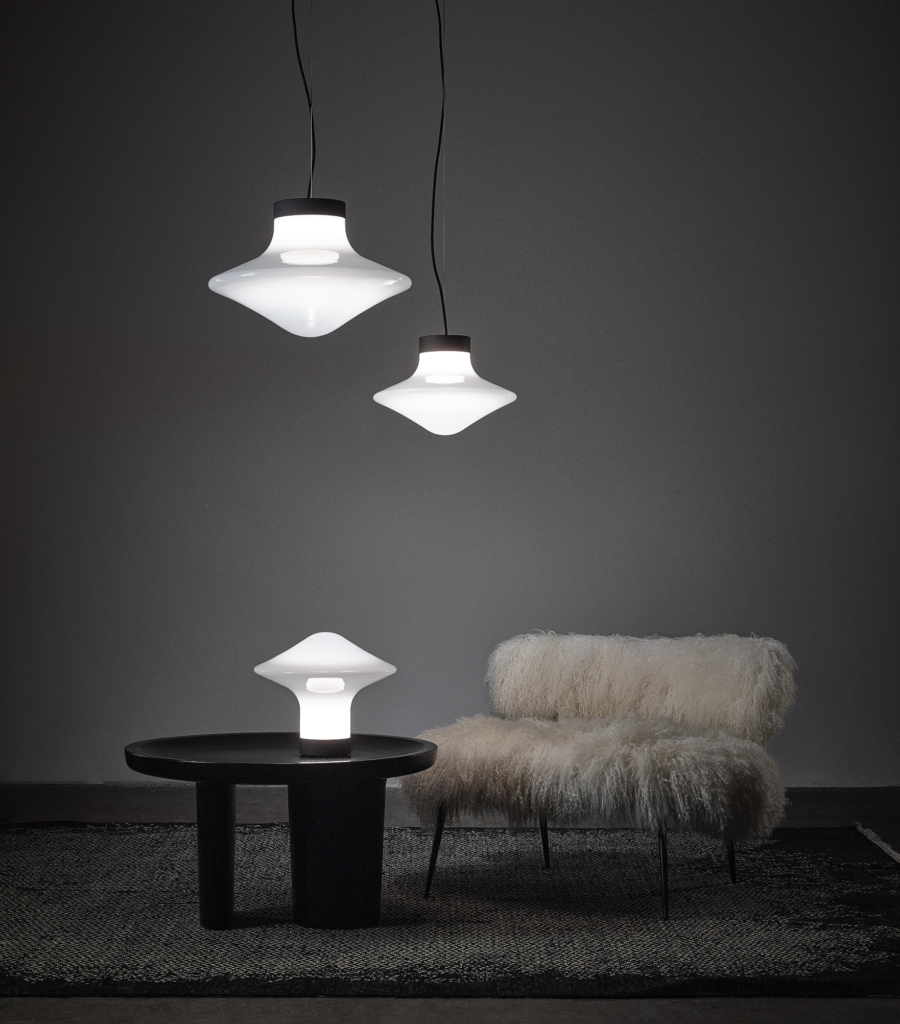
When we talk about lighting products, it’s not just about the light but also various mechanical and electrical components that can make a difference. Would you say Brokis is at the forefront in this aspect? Can you briefly tell us about the innovative solutions you’ve developed in-house?
Our lamps are much more than just design objects decorating interiors and exteriors in over 100 countries worldwide. Brokis constantly creates innovative and surprising smart solutions: one of these is a connector we developed over 10 years ago to facilitate the installation of the light source and cleaning of the glass shades. It can currently be found in 12 collections, and many of our innovations will become standard features in the new series. Our main motivation for continuous innovation is our desire to make our lights easier and more enjoyable to use. From the moment we start developing a new product, we place great importance on its durability and sustainable properties. Moreover, many of our innovative solutions introduce a new dimension of sustainability in our collections.
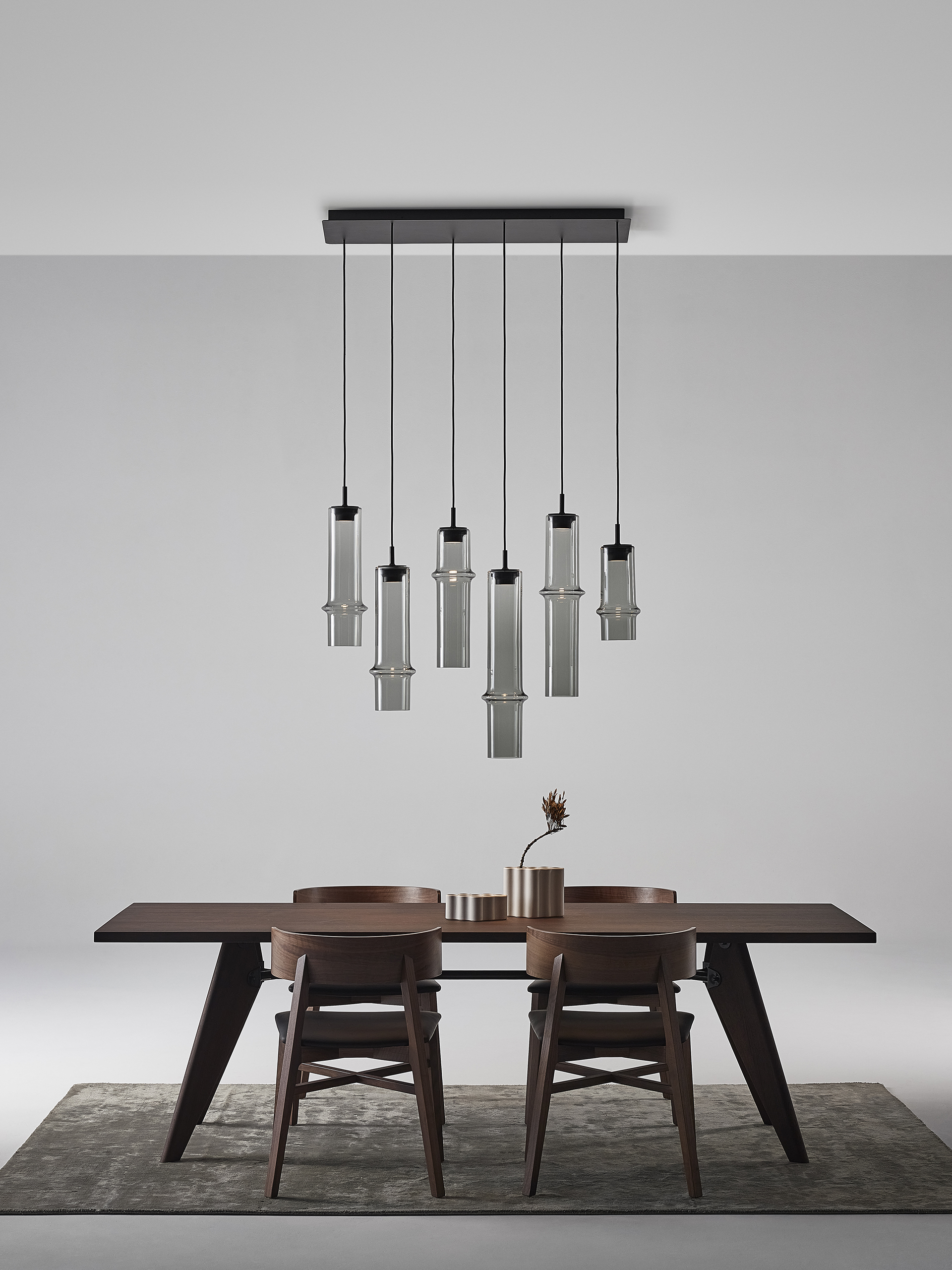
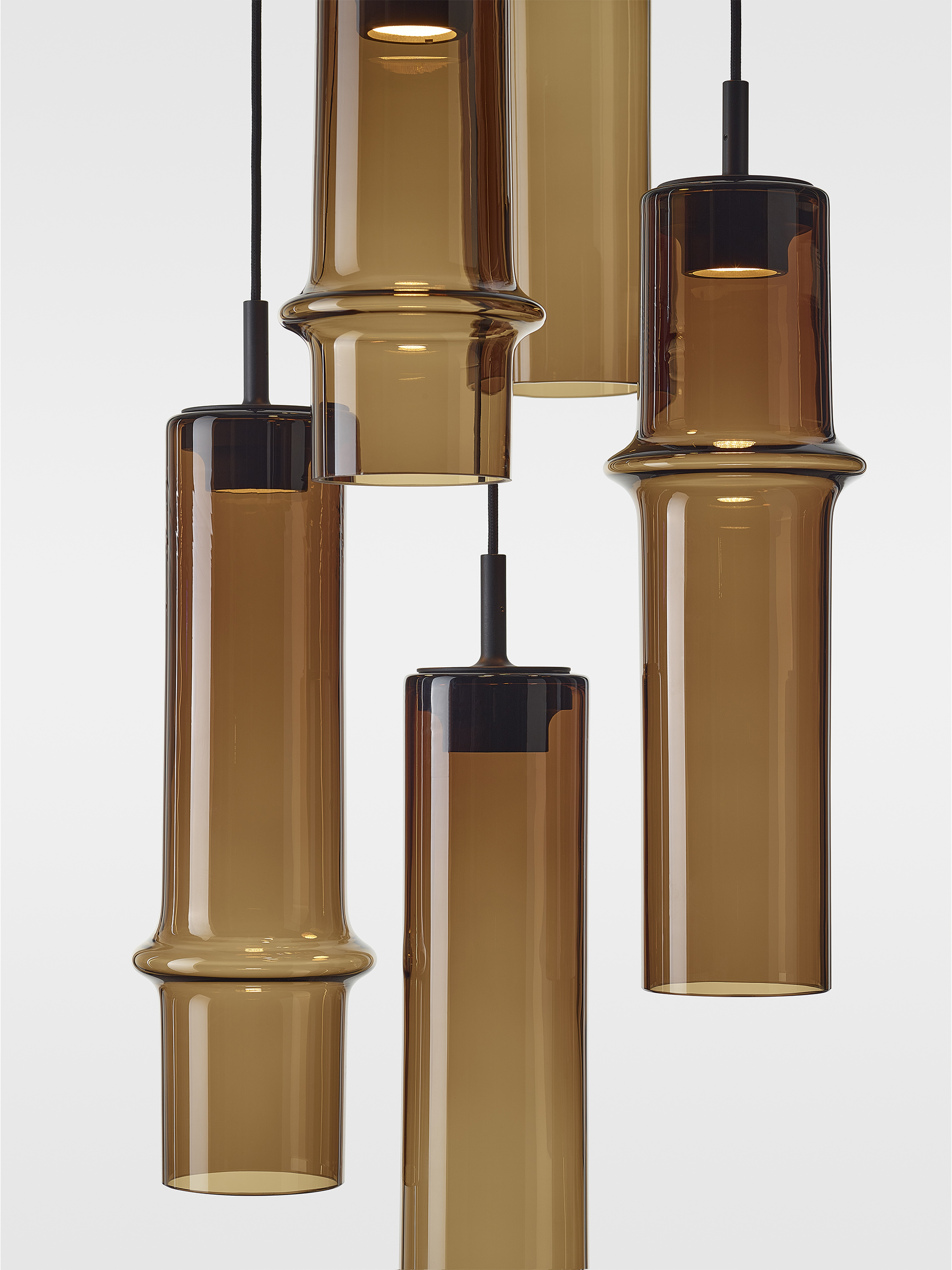
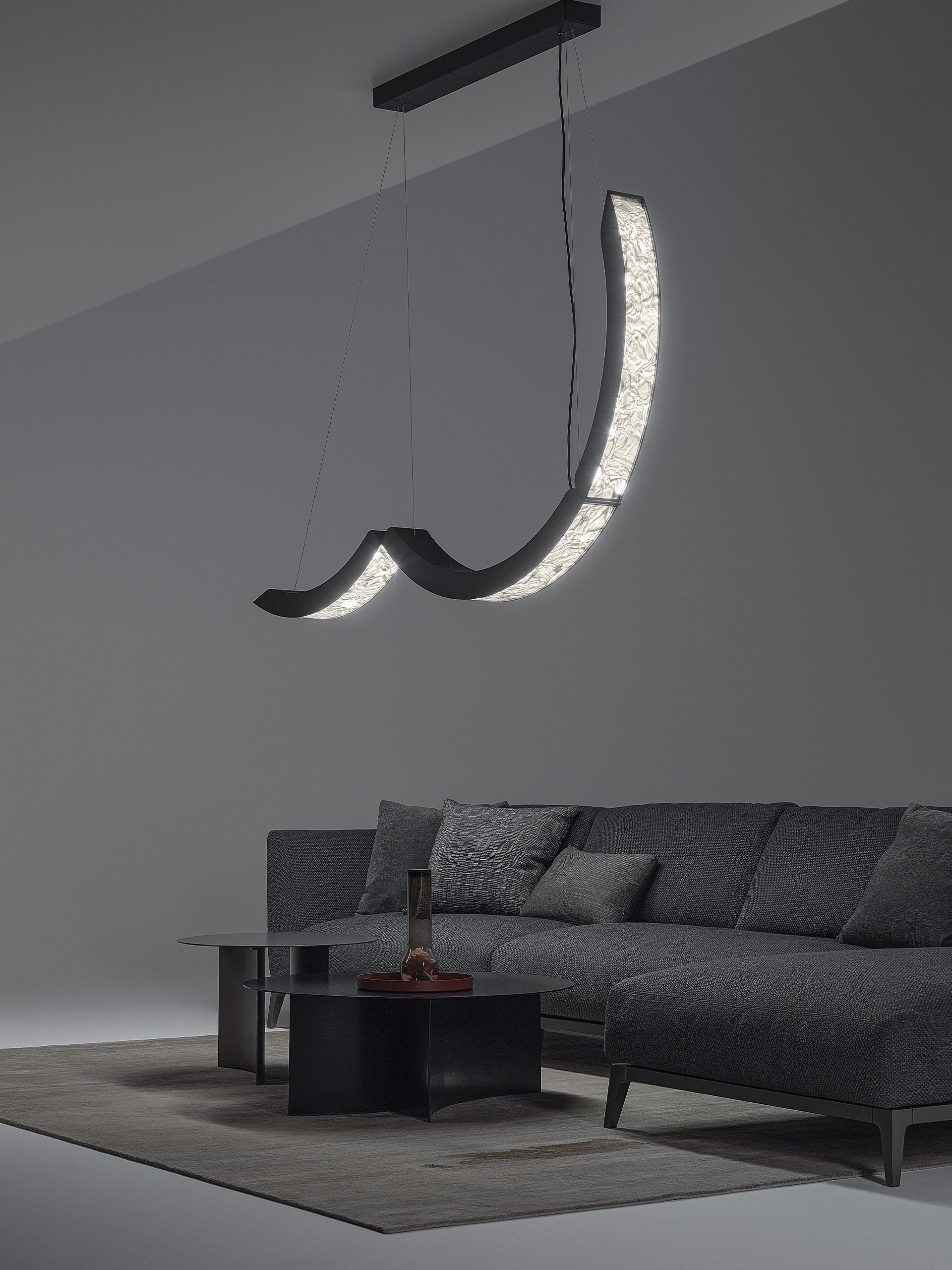
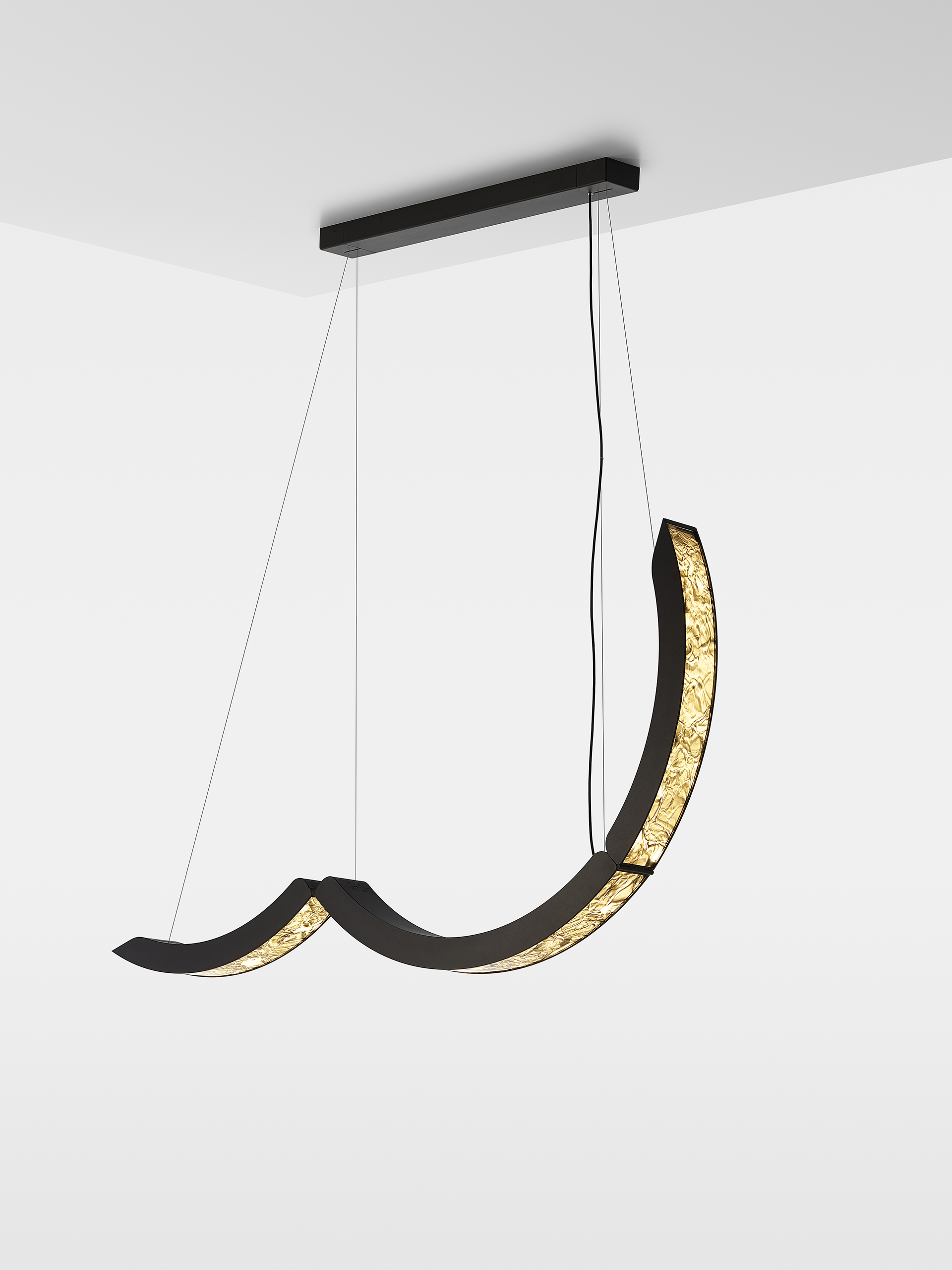
Brokis’s focus on sustainability and innovation is also evident in your approach to glass waste. What is BrokisGlass and how did it come about?
Sustainability has always been a very important theme for our company. Janštejn Glassworks, also part of our group, is located in the same complex as Brokis, and this proximity has enabled the creation of BrokisGlass. The Glassworks has made decisive steps in its modern history, including using new technologies and ways to work with residual glass, which in the past was sent to landfill. We wanted to change this situation and for over 13 years, this residual glass has been stored here in the Glassworks’ premises as a fully-fledged raw material for further recycling into ecological and efficient BrokisGlass slabs. Thanks to this product, glass acquires a new dimension that well suits use in architecture, construction, and product design. In the end, it depends on each one of us how we work with the material.
Tradition plays an important role in the production of Brokis, but also in the long-term vision: the VISION 2035 project will see the development of a campus next to the industrial plants. What are the goals? What will be the benefits of the project?
Not only does glass production have a long tradition in the Vysočina region, where Brokis and Janštejn Glassworks are located but Bohemian glass has also made an indelible mark on a global scale. For us, centuries of tradition are the key to history, a critical aspect that has an unmistakable place in our Glass Campus project.
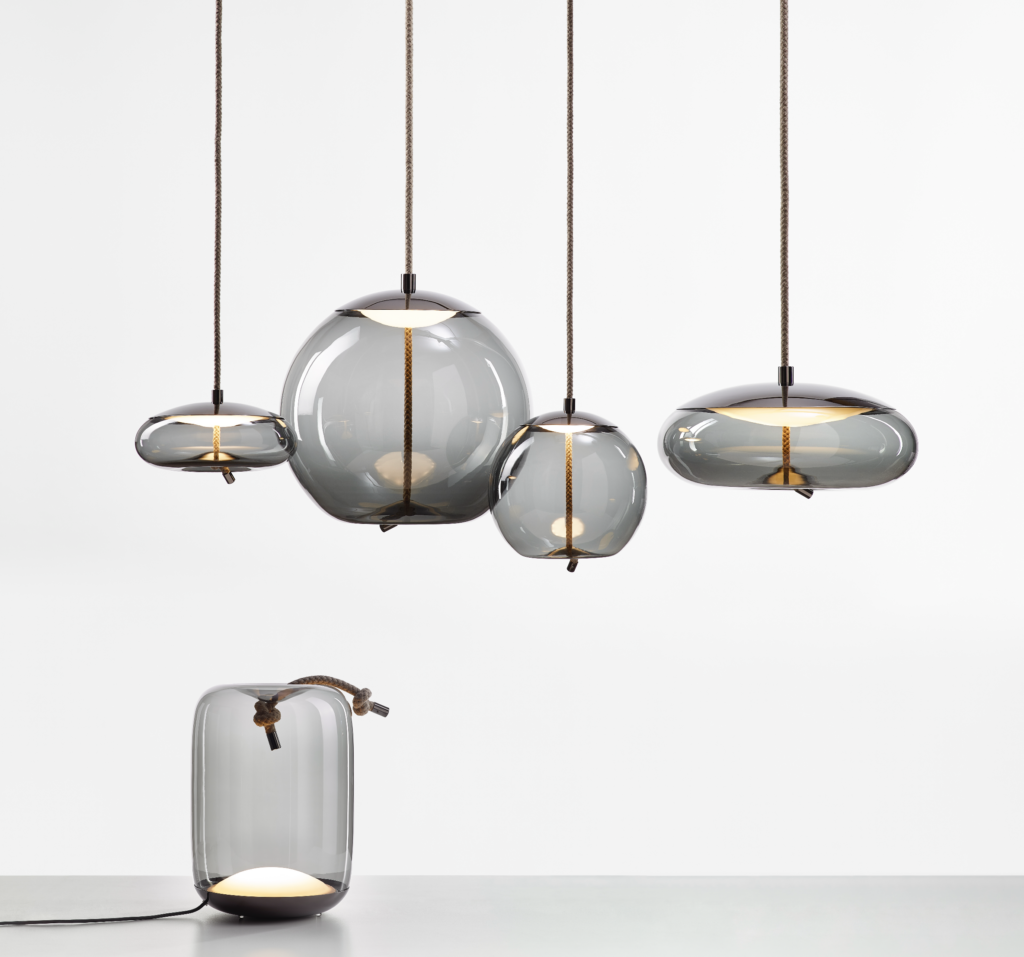
Moreover, the foundry and glassworks are the heart that brings life to the entire complex and the lighting collections born here. We want to leverage Brokis’s global reach to make the tradition of glassmaking at Janštejn visible worldwide. Thanks to innovative processes, the craftsmanship of our glassmakers, and a sustainable approach to tradition, we can apply this modern imprint in presenting the entire Glass Campus project globally.
